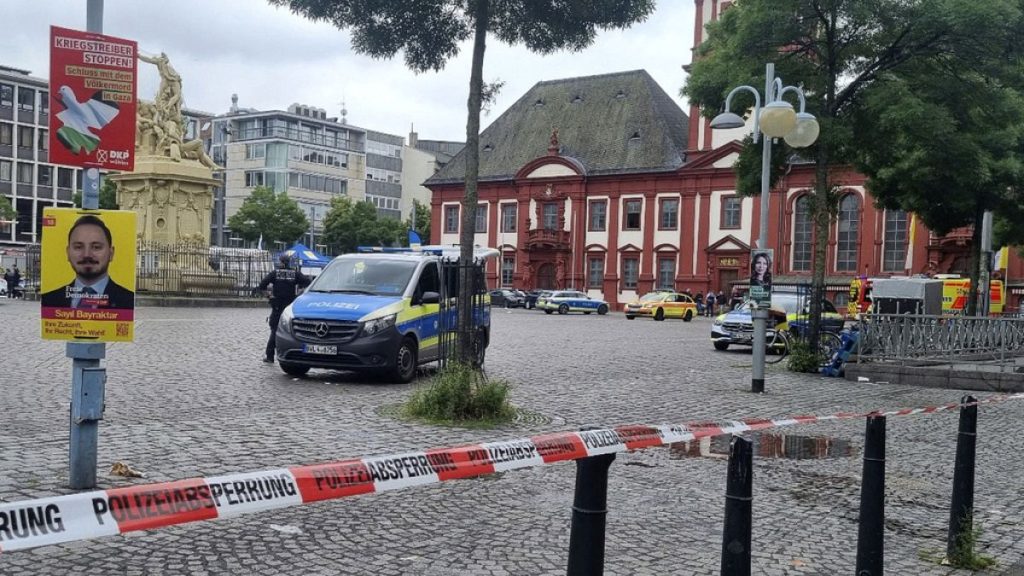Several people, including far-right anti-Islam activist Michael Stürzenberger, were injured in a stabbing incident in Mannheim, Germany. The attack occurred in a public square in the city, with a knife-wielding assailant targeting multiple victims. Police responded to the scene and shot at the attacker, resulting in injuries to the assailant as well. The severity of the injuries sustained by those involved in the incident has not yet been confirmed by authorities, with investigations ongoing.
The stabbing incident in Mannheim took place shortly after 11:30 am on a Friday, leaving several individuals wounded and in need of medical attention. The motives behind the attack and the identity of the perpetrator have not been disclosed by law enforcement officials at this time. However, there are reports suggesting that the far-right activist Michael Stürzenberger was among those injured in the attack, highlighting potential political motivations behind the violence.
The involvement of a far-right anti-Islam activist in the stabbing incident in Mannheim has raised concerns about the rise of extremist ideologies in Germany and the potential for politically motivated violence to escalate. The targeting of individuals based on their beliefs or affiliations represents a worrisome trend that threatens social cohesion and stability. Authorities must conduct a thorough investigation into the incident to determine the underlying causes and prevent similar acts of violence in the future.
The incident in Mannheim underscores the importance of addressing hate speech and extremist ideologies that can fuel acts of violence in society. The prevalence of anti-Islam sentiments and far-right extremism in Germany poses a significant challenge to the country’s social fabric and requires a concerted effort to combat. By promoting tolerance, understanding, and dialogue among diverse communities, Germany can work towards preventing future incidents of hate-related violence and promoting a more inclusive society.
As more information becomes available about the stabbing incident in Mannheim, it is crucial for authorities to take swift action to ensure the safety and well-being of all individuals affected by the violence. Support services should be made available to those injured in the attack, as well as to the broader community impacted by the incident. By fostering a sense of solidarity and resilience in the face of adversity, Mannheim can send a message of unity and strength in response to acts of hate and intolerance.
In conclusion, the stabbing in Mannheim highlights the ongoing challenge of combating extremism and promoting social cohesion in Germany. The incident serves as a sobering reminder of the potential consequences of hate speech and political violence, underscoring the need for proactive measures to address radicalization and intolerance in society. By standing together against hate and prejudice, communities can work towards building a more inclusive and harmonious future for all individuals, regardless of their background or beliefs.












